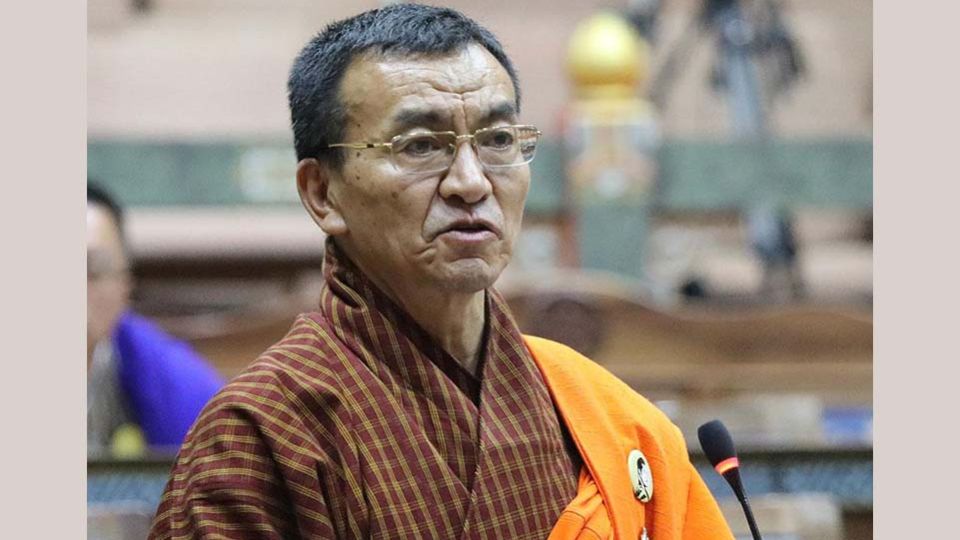June 16, 2025
THIMPHU – The government has allocated Nu 31.5 million for third child policy, Finance Minister Lekey Dorji said during yesterday’s National Assembly session, as the country grapples with concerns over low fertility rates and escalating outward migration.
Lyonpo was responding to the question raised by the Member of Parliament (MP) for Lingmukha-Toedwang, Namgay Wangchuk, who inquired about the government’s pledge regarding a third child allowance during the question-hour session.
According to Lyonpo, the country’s low fertility rates and migration are existential crises that demand serious attention.
Lyonpo said that while the third child policy was not a pledge from their People’s Democratic Party (PDP) manifesto, the government is actively working on providing Nu 10,000 per month for families with a third child and beyond, up to the age of three.
The PDP manifesto, however, did pledge cash incentives of Nu 10,000 per month for three years for the birth of a third child and above.
Lyonpo highlighted a concerning drop in fertility, stating that the average birth rate for single women fell from a minimum of six children in the 1980s to 1.7 percent in 2017. To maintain the population, he added, a replacement fertility rate of at least 2.2 percent per woman is required.
He also shared details on income tax policy changes designed to support families. These include tax deductions of Nu 1,000 (first child), Nu 1,250 (second), Nu 5,000 (third), and Nu 10,000 (fourth child and beyond). An annual tax relief of Nu 40,000 will also be provided for parents of children with disabilities.
Beyond tax benefits, the government intends to support school-going children by providing school lunches and increasing their stipends from Nu 1,500 to Nu 3,100.
Currently, the Japan International Cooperation Agency, via the World Bank, is assisting women in villages by covering Nu 1,500 per hospital visit.
“These initiatives aim to motivate young couples to have more children,” Lyonpo said.
To encourage childbirth, MP for Kengkhar-Werengla Dorji Wangmo called for a supportive environment and comprehensive policies.
She questioned the narrow focus on a third child policy by stating, “While we are creating a policy for the third child, we also need to focus on encouraging the birth of the first and second children.”
Dorji Wangmo further raised concerns about the expense of raising children, including taxed diapers, and the unequal maternity leave benefits for private sector employees compared to civil servants.
In response, Lyonpo said that diapers would be exempt from Goods and Services Tax. “What the government is doing may not solve all the issues, but we have to start somewhere,” he responded. He also shared plans to establish Early Childhood Care and Development centres in every chiwog.
Acknowledging existing budgetary limitations, he added that while the government would ideally wish to provide support for all children, from the first to beyond the third, even at a cost of millions, it was not feasible.


